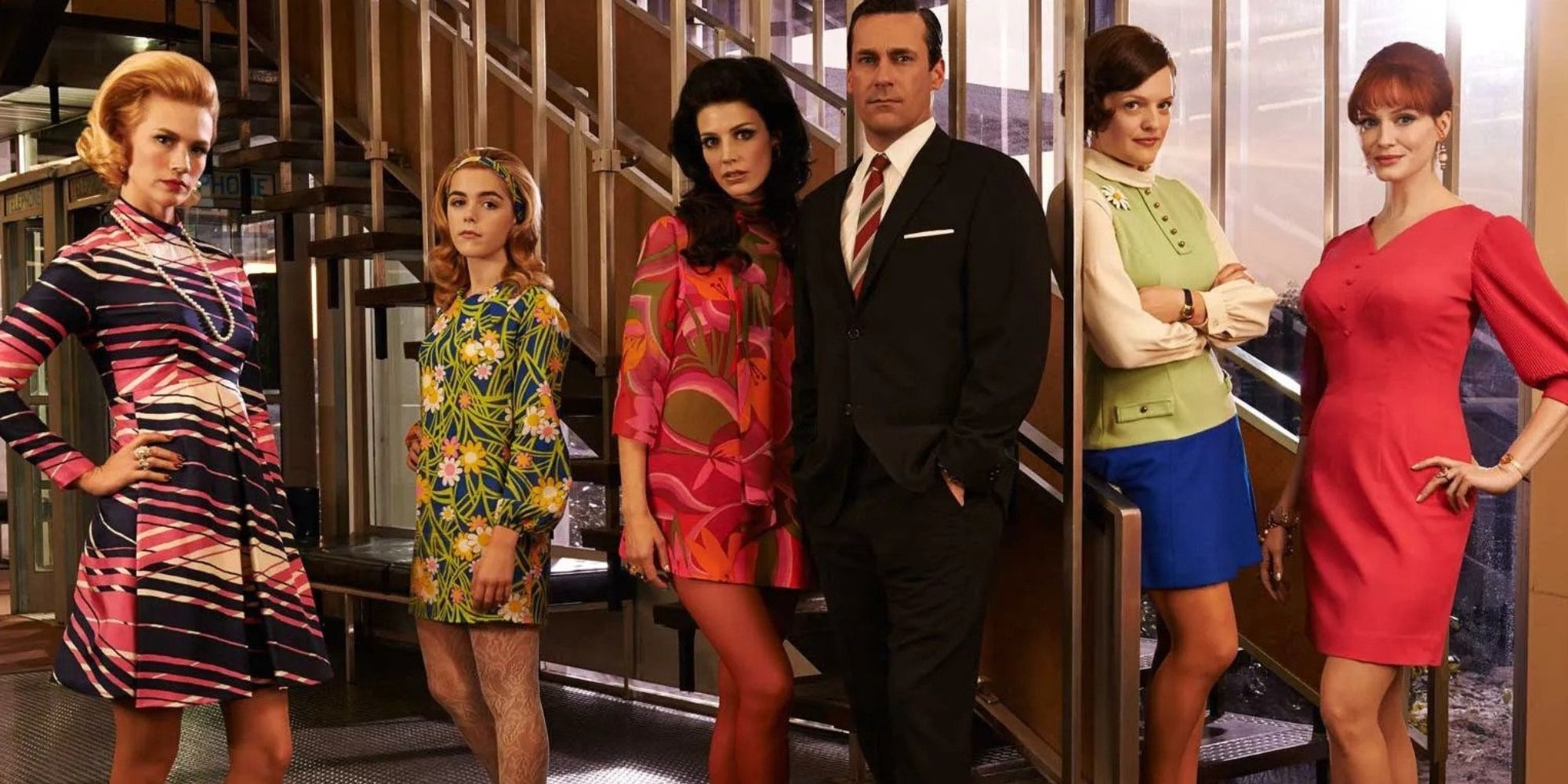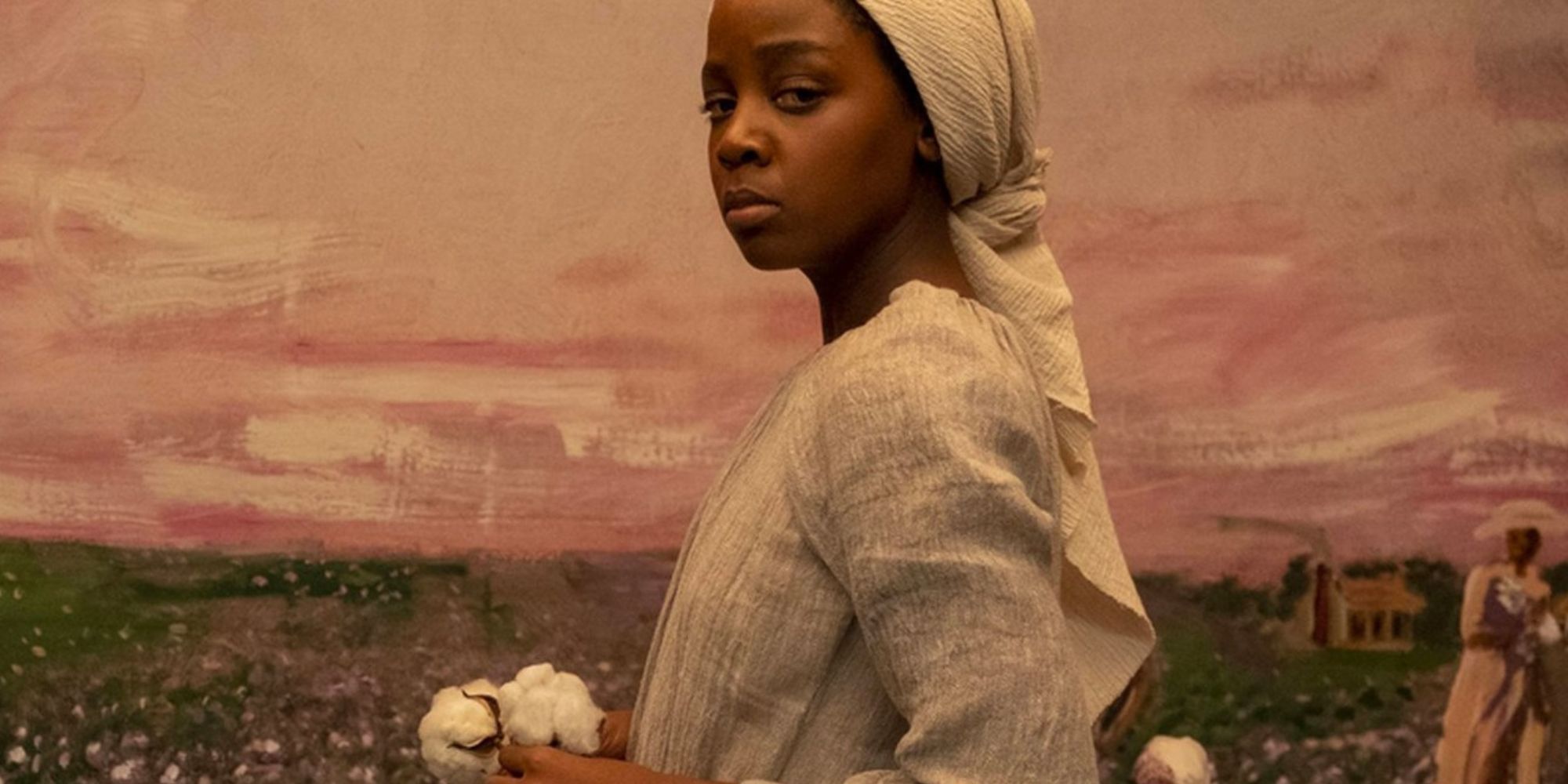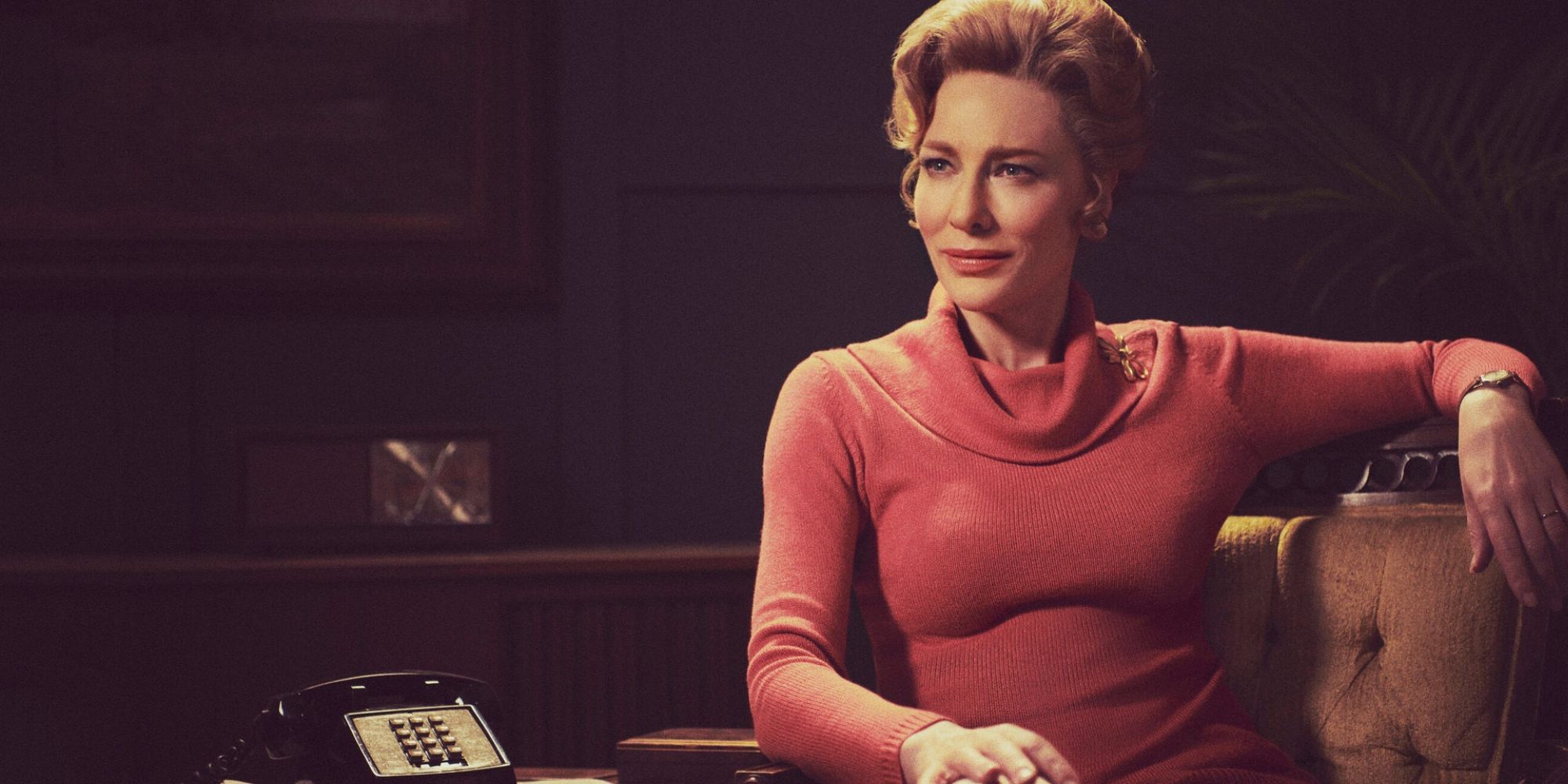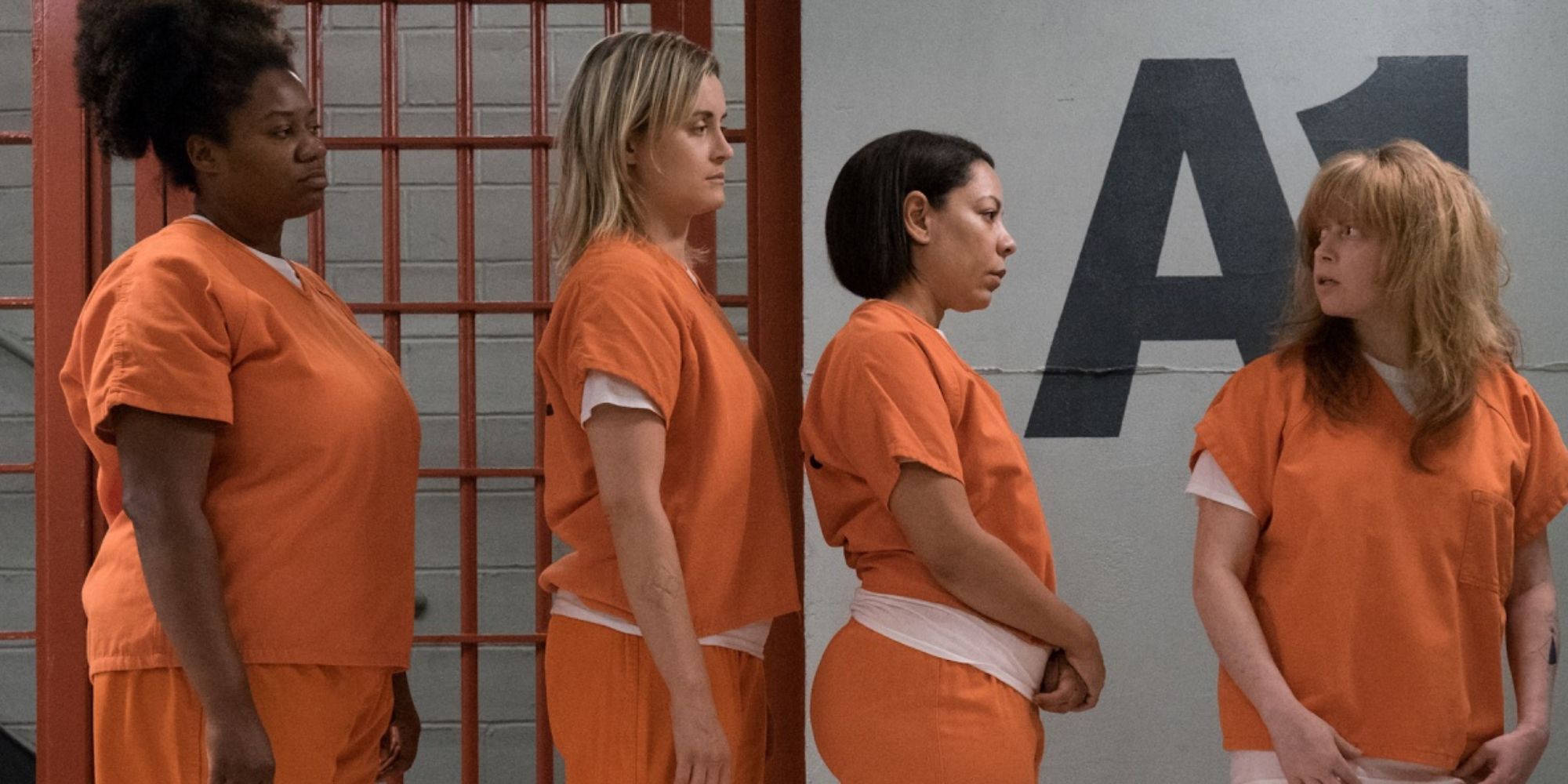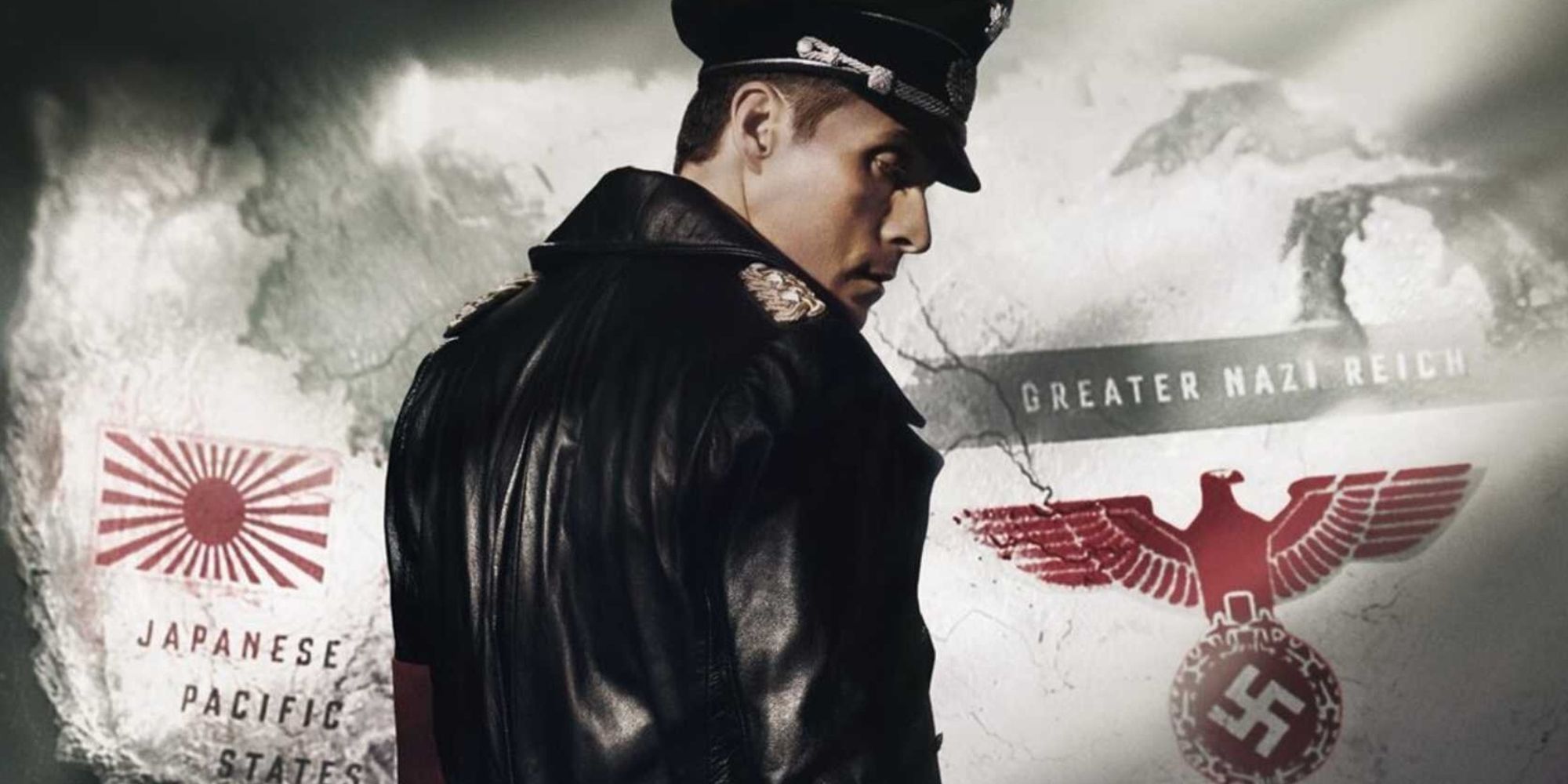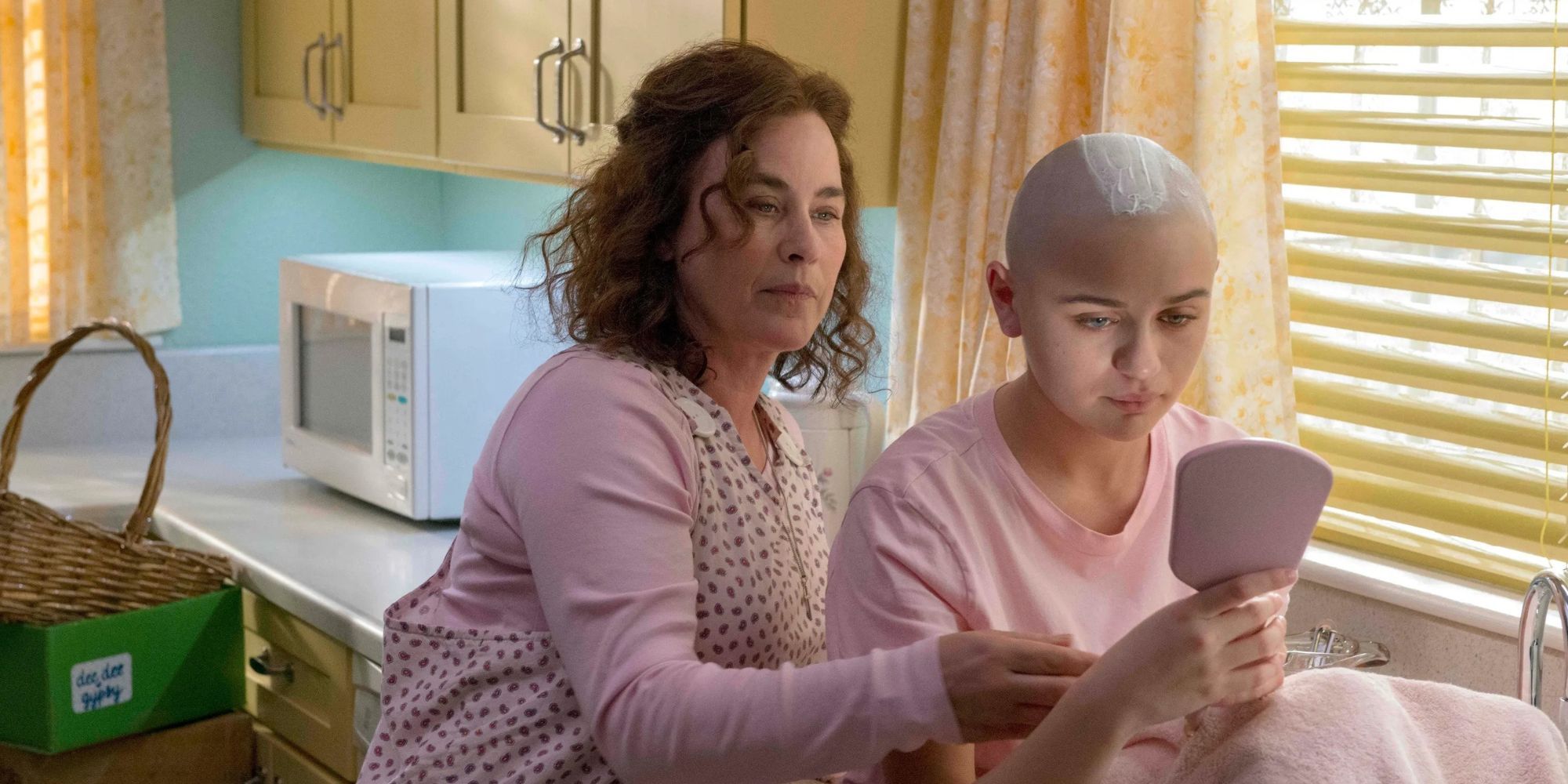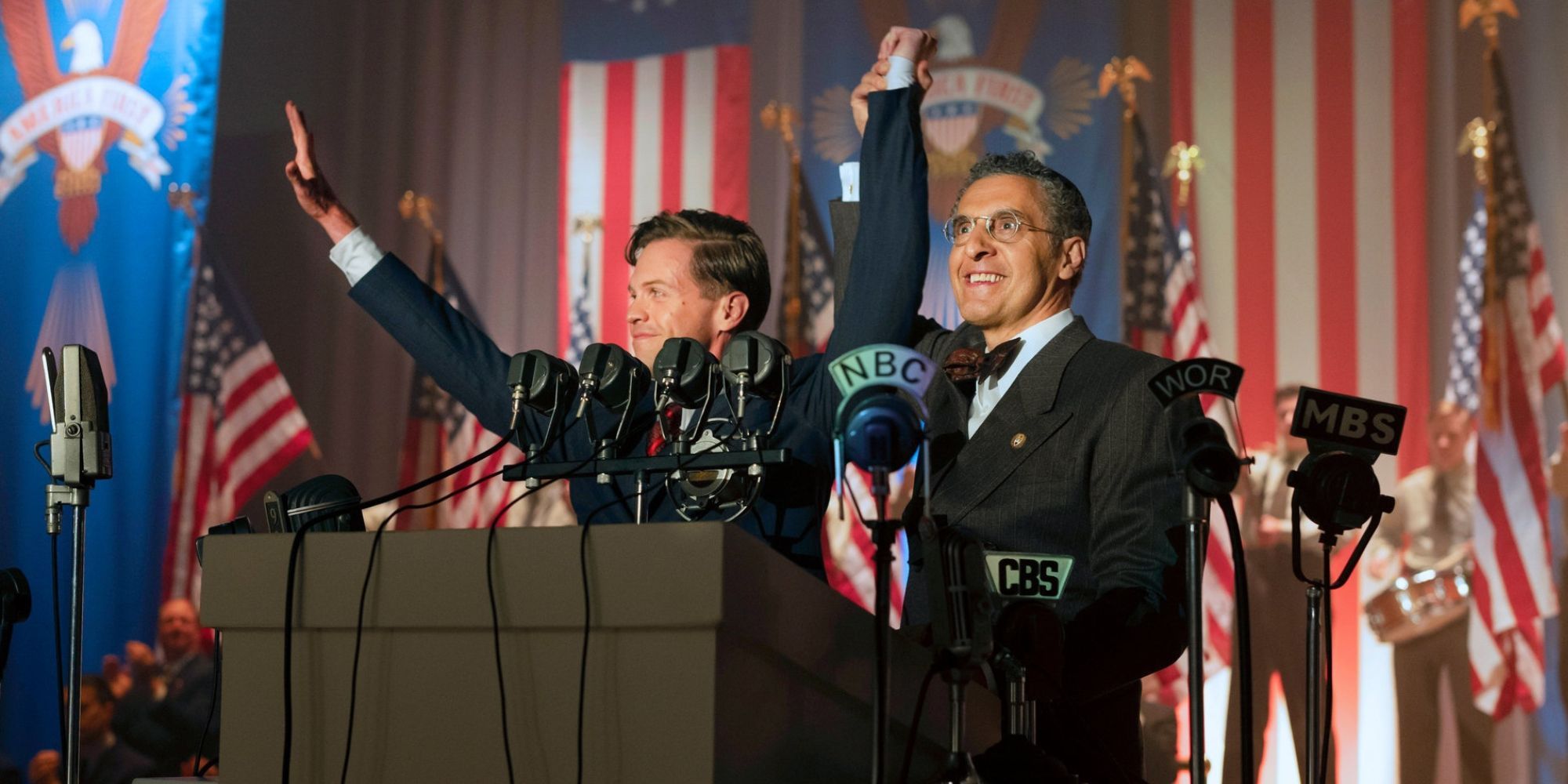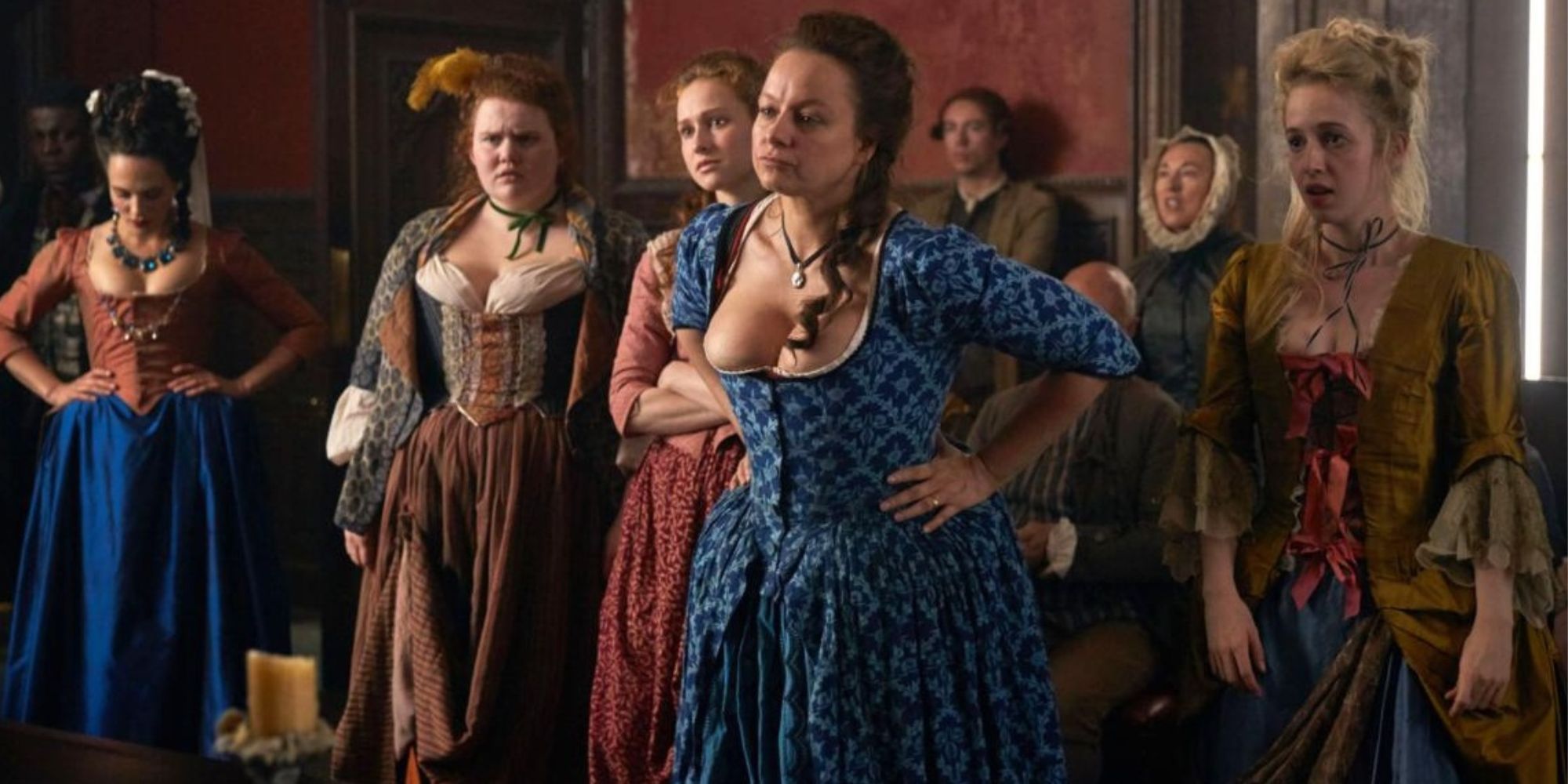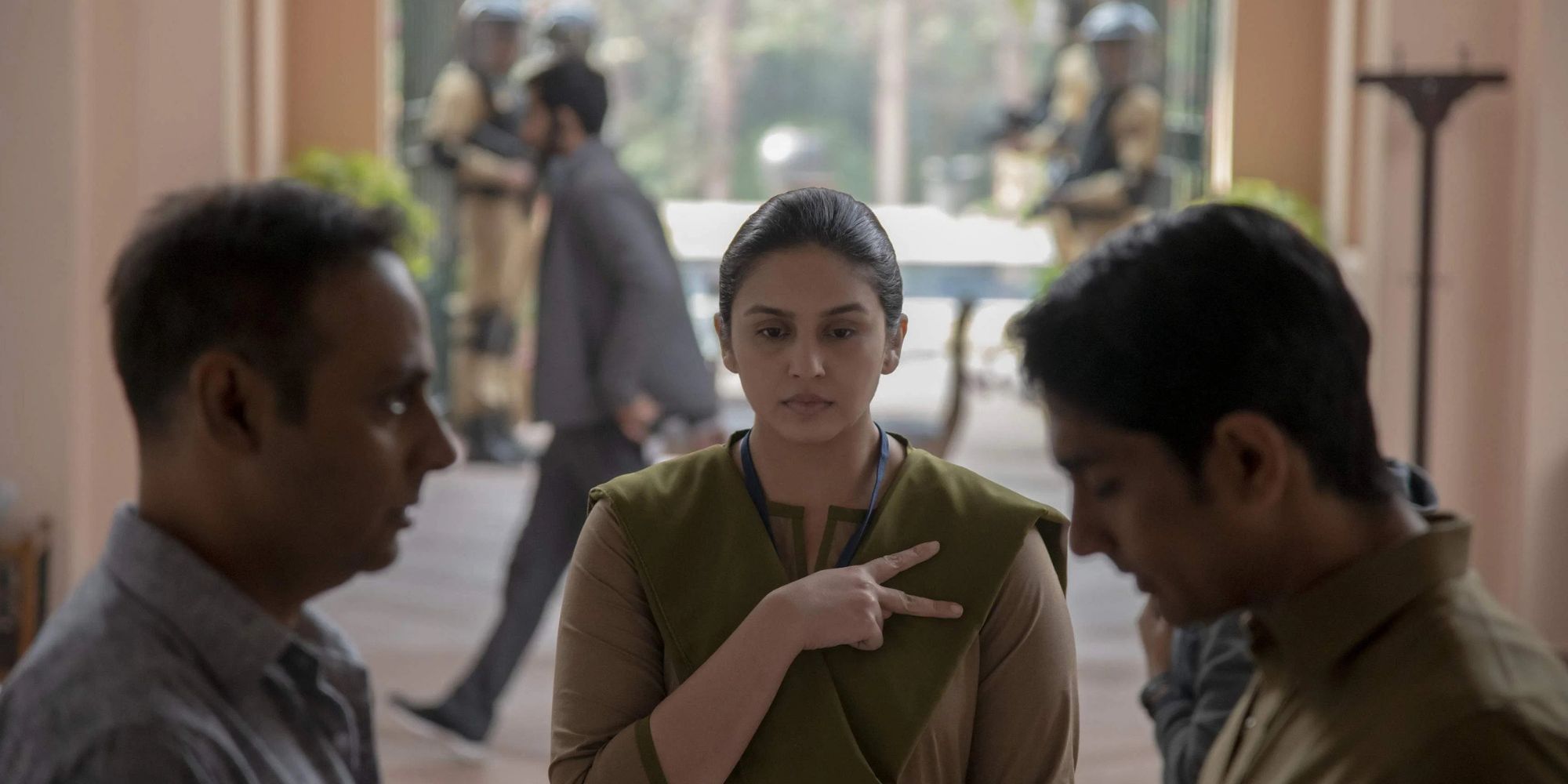Hulu’s The Handmaid’s Tale has taken the world by storm through its dire but relatively realistic depiction of an oppressive system. The Handmaid’s Tale—starring Elisabeth Moss and Yvonne Strahovski—tackles oppression created by the patriarchy, under the guise of their theocratic beliefs, that sees women separated into stratifications based on their "worth."
'The Handmaid's Tale' Social Stratifications, Explained
In The Handmaid’s Tale, Aunt Lydia (Ann Dowd) once said that there are two types of freedom: freedom to and freedom from. Oppression is often enacted as freedom from something - protection of some sort that keeps a person in line with strict rules and privileges. This can occur in large-scale schemes of society, such as in The Underground Railroad, or within a more personal dynamic, such as in The Act. No matter how oppression presents itself, the journey to escape confines engages the viewers’ need to fight the power.
'Mad Men' (2007 - 2015)
Set in the 1960s and ’70s, Mad Men worked to expose the divisive zeitgeist of the time through office politics and the journey into each character’s past. Don Draper (Jon Hamm) is the central character of the series, who struggles with his identity as he gains more power as the advertising executive of Sterling Cooper. Alongside him are numerous characters—played by Elisabeth Moss, Christina Hendricks, and January Jones—whose personal struggles and relationships are uncovered as the series progresses.
Like The Handmaid’s Tale, the series discusses the presence of issues in male-dominated structures, such as sexism, gender roles and their assumptions, and how to achieve social mobility—through the small-scale setting of an advertising company. A major part of the series is the emerging feminist movement within the office, as the women realize they deserve more.
'3%' (2016 - 2020)
Another dystopian that thrives on social ranking for survival, 3%, delivers a post-apocalyptic world that delivers The Hunger Games-inspired battles between the young. Starring Rodolfo Valente and Bianca Comparato, the series surrounds the attempts to bring down the system through an underground resistance called the Cause, unveiling the secrets of the elite.
Spanning across four seasons, 3% battles those on top. In a secluded part of Brazil, impoverished twenty-year-olds gain the chance to participate in a tradition known as the Process - a series of challenges that prove the merit of the individuals, where only those in the 3% of each class will succeed. In completion of the Process is the promise to live in the Offshore: a technologically advanced, environmentally engineered society that lifts individuals out of poverty.
'The Underground Railroad' (2021)
Historical fiction has never been as harrowing as The Underground Railroad—a miniseries on Amazon that unflinchingly depicts the treatment of Black individuals in America under a white supremacist society, where the slave trade is ongoing during the 1800s. The series centers around two slaves—Cora (Thuso Mdedu) and Caesar (Aaron Pierre)—and their journey from a Georgia plantation to freedom, as notorious slave-catcher Arnold (Joel Edgerton), refuses to let their escape taint his reputation.
Thuso Mbedu On How Making 'The Underground Railroad' Transformed Her View Of History
The Handmaid’s Tale is based on snippets of the reality women have historically endured, creating a fictional dystopia of the patriarchal dream. The Underground Railroad follows this but instead takes the dark, axiomatic reality for African-Americans during the period of American slavery: the effects of this period still impact the United States to this day. The journey to escape oppression may be harrowing in The Underground Railway, but an important story to uncover.
'Mrs. America' (2020)
Another series that follows women fighting for equality in a male-dominated society, Mrs. America, reflects on a dramatic retelling of Phyllis Schlafly (Cate Blanchett). She was an infamous figure of the 1970s and an activist against the feminist movement, namely, the Equal Rights Amendment, which could have ensured protection against gender discrimination.
Mrs. America is influenced by the second-wave feminist movement, commenting on the manipulation of power. The series focuses on figures of the movement through individualized episodes on Gloria Steinem (Rose Bryne), Betty Friedan (Tracey Ullman), Shirley Chisholm (Uzo Aduba), and Bella Abzug (Margo Martindale). A complex conversation on the social ebbs and flows of change, Mrs. America is a series that takes viewers to the forefront of oppression.
'Orange is the New Black' (2013 - 2019)
Spanning seven seasons, Orange is the New Black is a comedy-drama, but don’t be fooled by its genre: the series inhabits numerous comparisons to The Handmaid’s Tale. Starring Taylor Schilling, Laura Prepon, and Uzo Aduba, the show depicts life in a female-only prison, where corruption and brutality reign at the top of the power chain, and issues of racial discrimination, ethical living arrangements and other factors of well-being and safety are routinely at the forefront of the prisoner’s lives.
7 Underrated Series Based In Prison Like 'Orange Is The New Black'
Orange is the New Black provides a vast perspective of many individuals stuck in the correctional system, from any gender orientation, sexuality, ethnicity, race, or social class. Like in The Handmaid’s Tale, the women are oppressed through various natures, and they begin to realize that justice will only present itself if they fight hard against the power structure they are tangled in. Paired with individualized representations of people from different backgrounds, Orange Is The New Black is a series that kicks ass.
'The Man in the High Castle' (2015 - 2019)
Alternative versions of history are always an entertaining perspective that answers the "what ifs" the end result. The Man in the High Castle, based on the novel of the same name by Philip K. Dick, presents a harrowing version of events in World War II, where the Axis powers—namely Nazi Germany and the Empire of Japan—win the war and take reign in 1962. Germany controls the East coast and middle of America, and Japan has power over the West coast, with a neutral zone between the two.
The Man in the High Castle is a dystopian science-fiction series, like The Handmaid’s Tale—dealing with the dark side of humanity manifested through those in power. In Japanese-occupied territory, non-Japanese citizens are subject to racial discrimination and lessened rights, despite being integrated. In German-occupied land, the conquest continues for genocide and "purification," where ethnic minorities and those with mental and physical illnesses are euthanized—the members of the Resistance work towards dismantling the Reich and its associates throughout the series.
'The Act' (2019)
On a personal scale, oppression can occur in the home, as seen in The Act. This one-season true-crime series uncovers the infamous case of Gypsy Rose Blanchard (Joey King) and the murder of her mother, Dee Dee Blanchard (Patricia Arquette). The narrative shows the transformation of naive Gypsy realizing that her life is all a lie, with her mother orchestrating power over her in ways she never imagined was an issue.
Gypsy is oppressed under her mother’s care since birth when Dee Dee becomes convinced that her daughter is severely ill. Over the years, Gypsy’s list of ailments becomes vast—from cancer, epilepsy, and muscular dystrophy, to name a few—and her condition requires her to use a wheelchair. However, when the family moves to Missouri, Gypsy’s need to become independent brings to light her true potential, causing her to rebel.
'The Plot Against America' (2020)
Another alternative version of history, The Plot Against America, is a six-episode miniseries that stars Winona Ryder, Morgan Spector, and Zoe Kazan, set between 1940-42 in America. The series centers around the Levins, a working-class Jewish family who slowly realize their country is turning against them. The series imagines a world where Charles Lindbergh (Ben Cole) becomes president. Despite America’s "neutrality" in World War II, the country faces a wave of fascism that encourages racism and hatred already seen in Germany.
How 'Elvis' Shows America's Struggle With Sexuality
The Plot Against America takes oppression in the form of anti-Semitism, where those subject to discrimination must do everything they can to live in a world without hatred, despite being fostered with Nazi-like agendas spreading across the country. The series shows a family who becomes torn amidst uncertain times, fighting discrimination in any way they can.
'Harlots' (2017 - 2019)
Another series like The Handmaid’s Tale, where women set out to dismantle the patriarchy and its oppressive hands, is Harlots. The period drama follows the zeitgeist of the 1700s, where women either married or engaged in sex work to reap benefits in the economy. Margaret Wells (Samantha Morton) and Lydia Quigley (Lesley Manville) are rival brothel owners who fight to stay open and protect their livelihoods.
Harlots take sex work and present it in a positive light, where women feel empowered through their work and oppressed by those in power—a revolutionary take on a sometimes controversial subject. Struggles relating to social status, finances, and men who try to assert their dominance over women, the series presents powerful women who fight for their rights.
'Leila' (2019)
Dubbed the Indian version of The Handmaid’s Tale, Leila stars Huma Qureshi, Seema Biswas, and Siddharth in a dystopian drama miniseries. The series tells the story of a mother who attempts to find her daughter, who was taken captive by the powerful totalitarian government after environmental problems, and issues rules that separate individuals into classes of homogeneity: sounds familiar, right?
Leila presents a world where walls separate the rich from the poor, and children are taken away because of their mixed heritage. Women are sent to be "purified,"—where religious beliefs and practices are instilled through slavery and daily drugging. Like June’s (Elisabeth Moss) search for Hannah (Jordana Blake) leaves her fighting the patriarchy, Shalini’s (Huma Qureshi) struggle to find Leila (Leysha Mange) uncovers a dark side of humanity: where "the real dystopia is when we try to sell utopia."
From 'Gattaca' To 'The Truman Show': How Andrew Niccol's Films Confront Oppressive Systems


